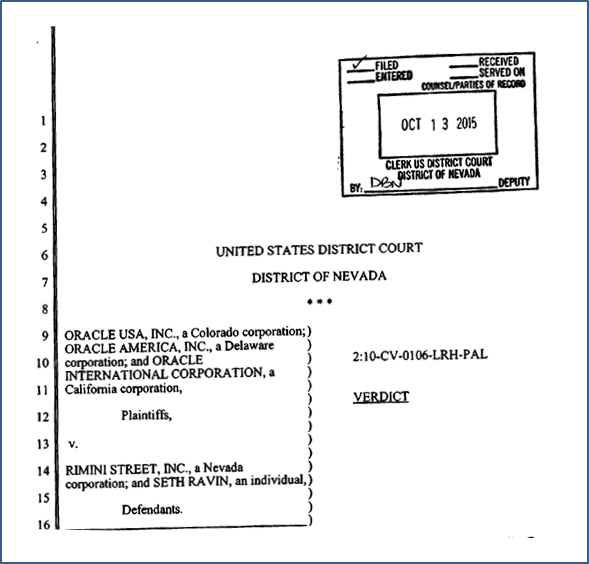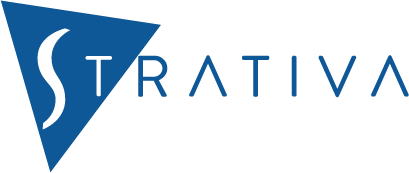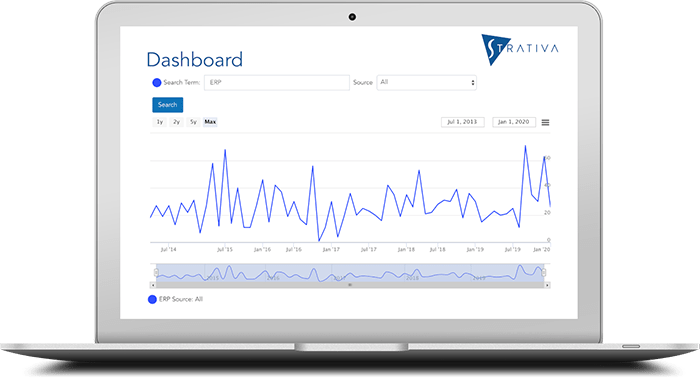
Earlier this month, the jury in Las Vegas reached its verdict in the Oracle v. Rimini Street lawsuit, a closely-watched case involving third-party maintenance (3PM) in the enterprise software industry.
Although the jury awarded Oracle approximately $50 million in damages, the amount was far below what Oracle expected. Moreover, the jury found that Rimini Street’s copyright infringement was “innocent,” not “willful,” that Oracle suffered no lost profits as a result, and that neither Rimini Street nor its CEO, Seth Ravin, engaged in any tortious business conduct.
Assuming the jury’s verdict stands up against potential appeals, the case sets an important precedent for how 3PM providers should operate to ensure they are not violating the intellectual property rights of software owners. We expect customer use of third-party maintenance will increase as a result of this verdict.
Oracle: Powered by Maintenance Fees
Like most large enterprise software vendors, Oracle makes enormous profit on maintenance fees paid by its customers. By Oracle’s own admission in SEC financial filings, the margin on these services is north of 90%. This is an important revenue stream to Oracle, because it provides money that Oracle can use to make acquisitions (of which there have been dozens over the past 15 years) as well as fund development of new products.
Oracle’s maintenance fees are not cheap. They are typically calculated at 22% of the original license cost for the software. This means that in less than five years, an Oracle E-Business Suite or PeopleSoft customer, for example, will have paid for the software a second time.
One reason that Oracle, SAP, and others have been able to charge so much for maintenance is that customers have had little choice. If they wanted to receive help desk support, bug fixes, and new versions of the software, they had to sign up for maintenance. If a customer does not plan to upgrade to new versions, it can cancel its maintenance contract at the end of the term, but this leaves the customer without support in the event that there are problems with the software.
This is where a 3PM provider such as Rimini Street comes in. By providing support services along with updates for tax and regulatory compliance, Rimini Street can sell a support-only contract at half the price Oracle charges—and still make money. In fact, Rimini Street goes beyond what Oracle offers: Rimini Street will support customizations that the customer has done to the Oracle software.
As noted above, high-margin maintenance fees are essential to Oracle’s business model. Though small in size compared to Oracle, but growing fast at nearly 40% a year in revenue, Rimini Street is a threat to that traditional software vendor financial model. Oracle, therefore, must have felt it needed to do something to defend against the emerging threat of 3PM to its business model.
Rimini Street Is Still Standing
Oracle first sued Rimini Street in 2010, alleging “massive theft of Oracle’s software and related support materials through an illegal business model.” Oracle had filed a similar lawsuit in 2007 against another 3PM provider, TomorrowNow, originally co-founded by Ravin but sold to SAP in 2005 (Ravin left his position at SAP in early 2005, just a few months after he sold TomorrowNow to SAP). SAP conceded liability early on in the case, and the case was settled on appeal by Oracle and SAP in 2014 for about $350 million.
No doubt, Oracle hoped that its lawsuit against Rimini Street would have a similar conclusion. Unfortunately for Oracle, the jury’s verdict must have been a disappointment. The jury awarded Oracle approximately $50 million in damages, far less than the $245 million that Oracle claimed going into trial. Of that amount, $35 million was for copyright infringement related to certain Oracle products (J.D. Edwards, Siebel, and PeopleSoft), and $14.4 million was for violations of certain California and Nevada state laws involving computer data access.
The conflict is not yet over. There are various post-trial motions that need to be considered, and both sides have the option to appeal the verdict. In addition, in order to deny Oracle any ability in the future to claim issues with Rimini Street’s processes, Rimini Street has filed a lawsuit against Oracle, asking the court to confirm that Rimini Street’s new processes deployed in July 2014 specifically for PeopleSoft update development, do not infringe on Oracle’s copyrights.
Complicating matters, Oracle has now indicated that it will seek an injunction against Rimini Street. Though some media outlets have incorrectly interpreted this to mean that Oracle is seeking to “shut down Rimini Street,” it only means that Oracle is seeking an injunction to bar Rimini Street from using certain business processes that the jury found to be infringing or improper – processes that Rimini Street claims that it stopped using by July 2014.
Third-Party Support Is a Legitimate Business, If Done Correctly
Nothing in this post should be interpreted as legal advice. It is easy to get lost in the details of the jury’s verdict and the back-and-forth of each side’s press releases. Because of confusion over this case, we are making available copies of the jury instructions and the jury verdict as well as press releases from the two parties:
- Oracle v. Rimini Street Jury Instructions
- Oracle v. Rimini Street Jury Verdict
- Oracle’s press release
- Rimini Street’s press release
Readers should evaluate each side’s press release in light of the actual court documents provided above.
Now, rather than focus further on the details of the case, let’s take a step back and evaluate what it means in terms of the big picture.
- The legality of independent third-party support is not an issue. Oracle has conceded as much, even before the trial. 3PM providers operate legally in many other markets, from auto repair to medical devices. Enterprise software is no different.
- Customers have a right to purchase third-party support. Customers do not need to be captive to the software owner’s support program. Customers can engage with 3PM providers to install and maintain software products, patches, and upgrades that the customer has rights to.
- Third-party support providers generally should deliver their services on an infrastructure where the customer is licensed to run the system. Where the verdict did hold Rimini Street liable, most of it involved situations where Rimini Street maintained copies of some Oracle products on its own infrastructure. Although this was permitted under some Oracle licenses, it was not permitted in others. Therefore, a 3PM provider is on safest ground when it simply delivers services remotely to the customer’s system. Such an approach is no different than a customer hiring an independent consultant to come on site and work on the customer’s system. In 2014, Rimini Street claims that it transitioned all of its services to this model and no longer maintains its own data centers for delivery of services.
A healthy, legitimate, 3PM marketplace is essential in the enterprise software industry. It is difficult and expensive for customers to switch enterprise systems, such as ERP. The pain of migrating to a competing vendor often leads customers to stay with incumbent ERP providers despite the cost of maintenance and support. Therefore, the availability of third-party support is virtually the only thing that puts a check on the ability of incumbent ERP providers to unilaterally raise the price of maintenance or otherwise behave abusively toward their customers, with tactics such as punitive license audits.
A Marketplace of 3PM Providers is Good for the Software Industry and Good for Customers
Thus far, Rimini Street and a handful of other providers have been openly offering 3PM services. But there are other consulting and technical services firms that offer 3PM on an informal basis. They do it on a case-by-case basis, without fanfare, not wanting to put themselves in the cross hairs of Oracle. In fact, they may be Oracle partners.
We believe that the verdict in this case goes a long way toward establishing the legitimacy of the 3PM business model. As such, it should encourage other providers to openly enter the market. These may include start-up providers as well as some of the major global IT services firms. The economics of 3PM are simply too attractive not to have other providers develop similar offerings. Rimini Street’s strong growth even while under the cloud of this lawsuit should encourage others to enter the market.
In this light, it is interesting to read what the judge wrote in his jury instructions. The following is from the judge’s instructions concerning Oracle’s charge that Rimini Street intentionally interfered with Oracle’s prospective economic advantage:
“A party does not intentionally interfere with prospective economic advantage when the party engages in free competition. In other words, a party is free to divert business to itself by all fair and reasonable means because it is in the interest of the public that companies compete against each other.”
….
“In other words, so long as Rimini Street and/or Seth Ravin’s motivation was at least partially to compete with [Oracle], and Rimini Street and/or Seth Ravin did not employ wrongful means to compete with [Oracle], then you must find that Rimini Street and/or Seth Ravin acted in the interests of free competition and did not intentionally interfere with [Oracle’s] prospective advantage.” [Emphasis added]
The jury found in favor of Rimini Street and Seth Ravin on this charge.
In our view, a robust marketplace for third-party support would be a healthy outcome. Software owners, such as Oracle and SAP, will finally have competition for their maintenance and support programs, encouraging them to become more flexible, offer more reasonable pricing, and improve the quality of their services. Existing 3PM providers such as Rimini Street will also have competition from other 3PM providers, encouraging them to differentiate with new services that further benefit customers.
In the end, customers will have more choices, which is always a good thing.

